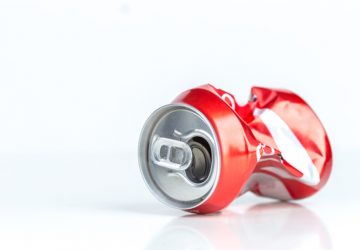 The Center for Science in the Public Interest (CSPI) doesn’t have an enviable record of courtroom victories (We’ve compiled the “worst hits” here.) That hasn’t stopped the group from threatening Welch’s grape juice with a lawsuit over a “heart-healthy” icon on the company’s labels. This isn’t the first time that either CSPI has attacked something tasty, or that the nation’s food police have turned their fire on wholesome fruit juice. Nor, for that matter, is this the first time that CSPI has spewed nonsense into the public arena.
The Center for Science in the Public Interest (CSPI) doesn’t have an enviable record of courtroom victories (We’ve compiled the “worst hits” here.) That hasn’t stopped the group from threatening Welch’s grape juice with a lawsuit over a “heart-healthy” icon on the company’s labels. This isn’t the first time that either CSPI has attacked something tasty, or that the nation’s food police have turned their fire on wholesome fruit juice. Nor, for that matter, is this the first time that CSPI has spewed nonsense into the public arena.
That would not have surprised Julia Child, the famed chef and champion of good eating, who was born 100 years ago today. She once said of CSPI in the Boston Globe: “Those people see no beauty in food. It’s a terrible thing.”
This time, CSPI is annoyed that Welch’s uses the results of studies “conducted on animals,” among other things, in the justification for its claims. That’s funny. The CSPI publication “Chemical Cuisine,” which purports to tell us that several common food ingredients are supposedly causing a host of maladies, also uses animal studies to back up its doom-and-gloom claims. Here are some gem quotes:
- “Two rat studies suggest that the additive might cause cancer”
- “In 2007, studies by the U.S. National Toxicology Program found that those two contaminants cause cancer in male and female mice and possibly in female rats”
- “Pregnant hamsters that had been fed large amounts of a derivative of stevioside called steviol had fewer and smaller offspring”
- “In other rodent studies, […] has caused cancer of the uterus, ovaries, skin, blood vessels, and other organs”
- “The best studies on rats and mice were peppered with suggestions (but not proof) that this preservative might cause cancer”
Best of all the animal findings might be this one: “It indicated that rats first exposed […] at eight weeks of age caused lymphomas and leukemias in females.” Later in the same entry, the article continues, “In a 2006 study, U.S. National Cancer Institute researchers studied a large number of adults 50 to 69 years of age over a five-year period. There was no evidence that […] posed any risk.”
So, did CSPI acquit the ingredient based on the National Cancer Institute study? Hardly: The ingredient in question is aspartame, the sweetener in diet soda. CSPI’s response was to subsequently promote a “New Rat Study” affirming the group’s prejudice against the zero-calorie ingredient. (It seems sometimes like CSPI never saw a tasty beverage it liked.)
In addition to demonstrating CSPI’s hypocrisy, this story shows the problem with the “precautionary principle” activist approach. One can always speculate as to the potential risks of any food product. But activists who want to halt food advancements appeal to the precautionary principle to attack low-risk ingredients.
The job of federal regulators is to balance the evidence of risk with the evidence of benefit and make a scientifically informed decision. Activists harp about “chemicals” and “risk” without properly considering that the dose makes the poison. Before siccing the lawyers on food and beverage companies for misleading claims, perhaps the plaintiffs should name themselves as defendants.




